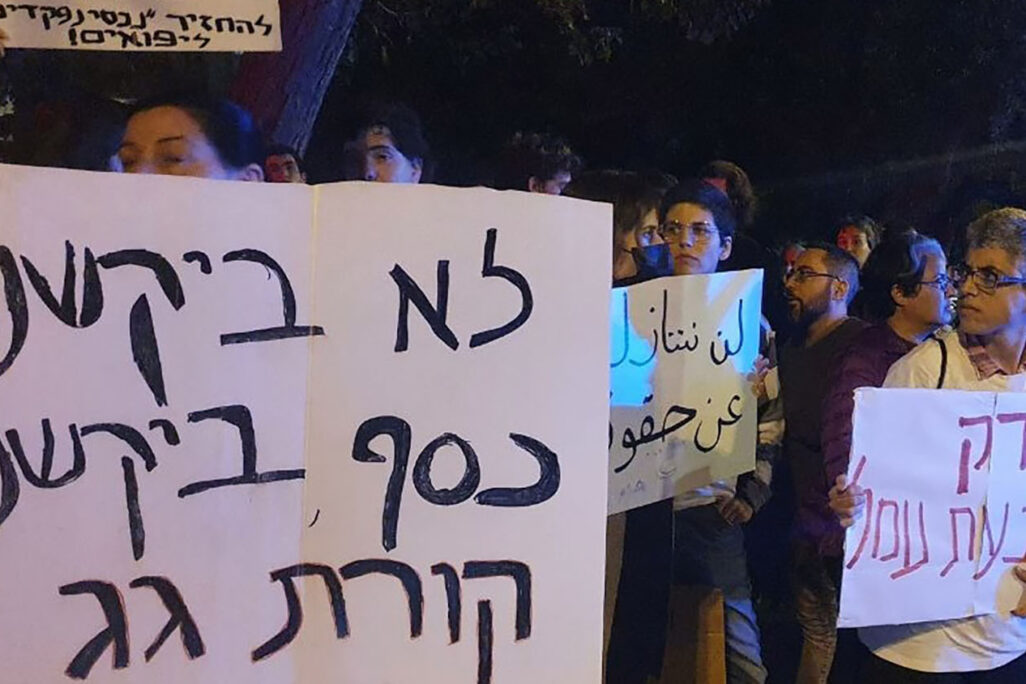
Once again, Yom Ha Zikaron laShoah v’laGvura (Holocaust and Heroism Remembrance Day) has come and gone. And as with every year, once all the ceremonies have ended, there are still tens of thousands of senior citizens waiting to receive public housing. The word “disgrace” comes to mind when one thinks of the way that successive Israeli governments, going back to the founding of the state, have treated senior citizens in general, and survivors and refugees of the Holocaust in particular.
Shamefully, thousands of elderly Holocaust survivors and tens of thousands of Holocaust refugees continue to live in poverty in Israel today. Israeli governments, which consistently ignore poverty in Israeli society, also ignore those who survived the unthinkable.
The current “change” coalition is no different in its unwillingness to face the deep distress in Israeli society. The current government refuses to create a plan to revitalize public housing, therefore abandoning hundreds of thousands of families in need of housing – among them Holocaust survivors and refugees, elderly and disabled individuals, single mothers, and children – to a life of poverty.
According to data made available to the Public Housing Forum, more than 4,000 Holocaust survivors who are eligible for public housing remain on the waiting list, as well as tens of thousands of Holocaust refugees.
Instead of providing survivors with a roof over their heads that might finally offer them a sense of being at home, our leaders make do with annual ceremonies and lectures on the solemn duty to remember. But when the ceremonies end so does the memory, and those who fled from or lived through the Holocaust are once again ignored. Some Holocaust refugees and survivors have been waiting for public housing for more than 20 years, and if the government does not act quickly, they are likely to remain on the waiting list for the rest of their lives.
We at the Public Housing Forum have seen that in addition to its refusal to address the severe shortage of public housing units, the government has treated those survivors who have been lucky enough to receive apartments in public housing with utter neglect. The apartments are in a shocking state of disrepair and in many cases are unfit for human habitation. Sometimes the conditions even amount to a tangible danger to the lives of the residents. Mold, dampness, peeling paint and crumbling walls, broken windows, and leaking sewage are just some of the hazards that we see every day in public housing units. The owners of the buildings have no incentive to address these issues as they continue to receive funding from the Housing Ministry in any case.
In many cases, public housing units are not suitable for the needs of the residents. Many apartments that house Holocaust survivors not accessible to those with disabilities. We’ve seen countless cases of elderly or disabled residents who were unable to leave their homes because the Housing Ministry and the landlords refused to provide accessibility accommodations. Together with these residents, we’ve been forced to wage campaigns of public pressure and legal action in order to achieve the basic right to live in accessible housing.
The Welfare Ministry’s Committee for War Against Poverty has found that poor families spend 61% of their disposable income on housing. It has also found that public housing can save families from poverty: 40% of recipients of public housing do not require any other welfare services. In light of these statistics and the atrocious state of public housing, and in order to truly honor Yom HaZikaron laShoah v’laGvura, we must hold our policymakers accountable.
We must ask the Housing and Finance Ministries: How can it be that for more than twenty years, the government of the State of Israel has failed to provide for housing assistance for Holocaust survivors and refugees, not to mention people living in poverty generally, in any of its published housing plans? Do you really think that these people do not deserve the basic right to live in decent, stable housing like anyone else?
This article was translated from Hebrew by Sam Edelman.






